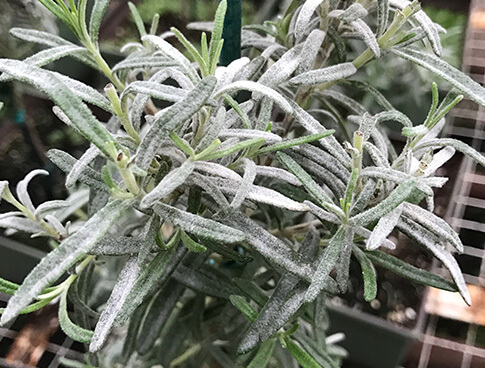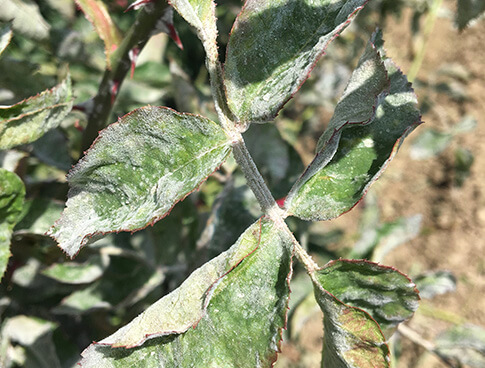Powdery Mildews are Among the Most Common Challenges Growers Face
Powdery mildews are among the most common challenges growers face when trying to deliver a plant with superior quality. Powdery mildew fungi are obligate plant parasites, meaning they require a living host to complete their lifecycle. They typically do not kill plants, but they colonize and infect the upper leaf surface, quickly reducing quality and rendering plants unsaleable.
- The common name, powdery mildew, describes the appearance, which is similar to a white powder covering the leaf surface. The conidia (spores) contribute to this appearance.
- Powdery mildew fungi colonize leaves and sometimes can be seen growing on stems and flowers.
- Most often, powdery mildew fungi colonize the upper leaf surface and are rather easy to spot. However, symptoms of yellow to brown leaf spots are sometimes present with minimal evidence of the fungus. Sometimes, the infection can be primarily on the underside of the leaf.
- The most common powdery mildews that attack ornamental plants prefer high relative humidity (90% or greater) and moderate temperatures ranging from 60 – 80°F.
- The spores do not require free standing water to germinate or infect plants, so relative humidity and temperature are the primary factors that drive infection.
- Virtually every species of ornamental plant, including trees and shrubs, bedding plants and foliage crops has susceptible varieties.
- Powdery mildews are particularly destructive to sunflowers, roses, African violets, begonias, gerbera daisies, hydrangeas, kalanchoes and poinsettias.
- Powdery mildews favor high relative humidity, so increasing air movement around the plant canopy helps reduce the potential for infection. Space plants to allow as much air movement as possible. Extended dry periods can kill the conidia.
- Since there are limitations to controlling environmental conditions, fungicides are often the best approach for controlling powdery mildew.
- Preventive fungicide applications are usually recommended. Compass® and Trigo® can be used on all stages of crop development for effective control of powdery mildew. Refer to product labels for directions.
|
Powdery mildew on Rosemary. Photo credit: Aaron Palmateer |
Powdery mildew on Dr. Huey Roses. Photo credit: Steve Larson |


